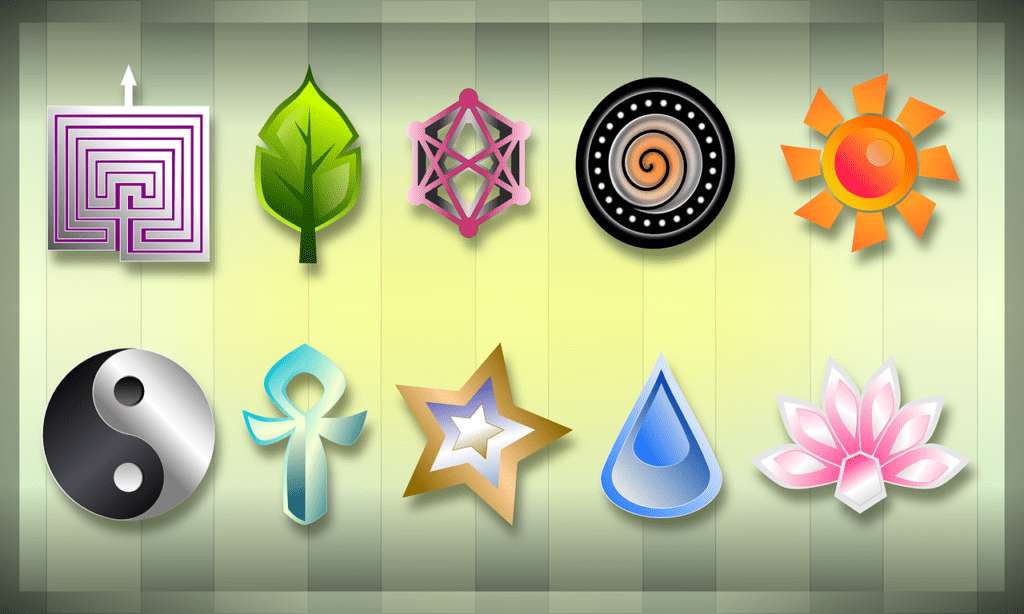
Intro
A Spiritual Mindset and Spirituality is a concept that has been around for centuries, yet its true meaning remains open to interpretation. Often times, it is used interchangeably with religion, but in reality, the two are quite different. While religion is associated with a set of beliefs and practices, spirituality encompasses a broader understanding of the self and one’s connection to the world around them.
It is a mindset that focuses on inner growth and development, rather than adherence to external doctrines. In this blog post, we will explore the beauty of a spiritual mindset and how it differs from traditional religious beliefs.
Understanding the Concept of Spirituality
Spirituality is a multifaceted concept that often defies a single definition. At its core, spirituality encompasses a deep exploration of the meaning of life and our individual place in the world. It invites us to look beyond the material and external aspects of our existence and instead turn our attention inward. Spirituality is a quest for inner peace, inner wisdom, and a sense of purpose that goes beyond mere pleasure-seeking.
Unlike religious beliefs, which are often structured around a set of doctrines and practices, spirituality is a more personal and individualized journey. It allows us to explore our own beliefs, values, and connection to something greater than ourselves, whether that be a higher power, nature, or the collective consciousness of humanity.
While religion can offer a framework for spiritual exploration, it is important to distinguish between the two. Religion often prescribes a specific path to follow, while spirituality encourages individual exploration and personal growth. Spirituality does not rely on external authorities or rituals; it is an inner journey that empowers individuals to seek their own truth and meaning.
In today’s fast-paced and often superficial world, spirituality provides an anchor to reconnect with ourselves and find meaning in life. It encourages us to ask important questions: What is our purpose? Do we have a deeper calling? It invites us to cultivate inner peace and wisdom, enabling us to navigate life’s challenges with resilience and grace.
In the following sections of this blog post, we will delve deeper into different paths to spiritual awareness, explore the link between spirituality and well-being, discuss the role of spirituality in mental health, and provide practical tips on fostering a spiritual mindset in everyday life. We will also share stories of personal journeys towards spirituality, highlighting the transformative power of this mindset. So join us as we embark on this beautiful exploration of the spiritual realm.

Different Paths to Spiritual Awareness
Exploring spirituality is a deeply personal journey, and there are many different paths one can take to achieve spiritual awareness. Each individual has their own unique way of connecting with their inner self and the world around them. In this section, we will discuss some of the various paths that people may choose to embark on in their search for spiritual understanding.
One path to spiritual awareness is through mindfulness and meditation practices. By quieting the mind and focusing on the present moment, individuals can cultivate a deeper sense of self-awareness and connect with their inner selves. These practices can also help to reduce stress and anxiety, allowing individuals to find a sense of peace and calm within.
Another path to spiritual awareness is through nature and the natural world. Spending time in nature can be a powerful way to reconnect with ourselves and gain a greater appreciation for the beauty and interconnectedness of all living beings. Nature can serve as a teacher, reminding us of the importance of living in harmony with the earth and its inhabitants.
For some, creativity and artistic expression can be a pathway to spiritual awareness. Engaging in activities such as painting, writing, or dancing can help individuals tap into their inner wisdom and connect with something greater than themselves. These creative outlets can serve as a form of meditation and self-expression, allowing individuals to access their innermost thoughts and emotions.
Exploring different philosophical and spiritual traditions can also be a valuable path to spiritual awareness. Learning about different belief systems and religious practices can help individuals expand their understanding of the world and their place in it. This exploration can provide new insights and perspectives, deepening one’s spiritual journey.
Ultimately, the path to spiritual awareness is a deeply personal one. It is about asking ourselves the important questions: what is our purpose? Do we have a deeper calling? By seeking these answers and engaging in practices that go beyond mere pleasure-seeking, we can embark on a journey of self-discovery and find the path that resonates most with our unique spiritual nature.

The Link between Spirituality and Well-being
Spirituality and well-being are deeply interconnected. When we embark on a spiritual journey, we begin to discover the profound impact it can have on our overall well-being. In a world that often prioritizes material success and external validation, spirituality offers a counterbalance, reminding us of the importance of inner peace and fulfillment.
At its core, spirituality invites us to go beyond mere pleasure-seeking and ask ourselves the important questions: what is our purpose? Do we have a deeper calling? These questions guide us towards a deeper understanding of ourselves and our place in the world.
When we engage in practices such as mindfulness, meditation, and self-reflection, we cultivate a sense of inner peace and clarity. We begin to prioritize our mental and emotional well-being, allowing us to navigate life’s challenges with resilience and grace. Spiritual practices can also reduce stress and anxiety, improve sleep quality, and enhance overall mental health.
Additionally, spirituality encourages us to live in alignment with our values and principles. It reminds us of the interconnectedness of all living beings and promotes compassion, empathy, and kindness towards others. When we prioritize these values, our relationships become more fulfilling and meaningful, contributing to our overall well-being.
Spirituality also provides us with a sense of purpose and meaning in life. By connecting to something greater than ourselves, whether it be a higher power, nature, or the collective consciousness of humanity, we tap into a deep well of inspiration and motivation. This sense of purpose fuels our actions and gives us a sense of fulfillment and satisfaction.

The Role of Spirituality in Mental Health
The role of spirituality in mental health is a topic of great significance and importance. In our fast-paced and often stressful world, many individuals find themselves searching for a deeper sense of meaning and purpose. Spirituality offers a pathway to explore these existential questions and find solace in times of emotional distress.
One of the key benefits of spirituality in mental health is its ability to provide individuals with a sense of inner peace and calm. When we engage in spiritual practices such as meditation, prayer, or self-reflection, we create space for stillness and quietude in our minds. This can help to alleviate symptoms of anxiety and depression, allowing us to find a sense of equilibrium amidst life’s challenges.
Spirituality also encourages individuals to look beyond material success and external validation and focus on the search for inner peace and fulfillment. It invites us to explore our values, principles, and what truly matters to us on a deeper level. This self-reflection can lead to greater self-awareness and a clearer understanding of our own needs and desires, thus improving our overall mental well-being.
Furthermore, spirituality promotes a sense of interconnectedness and empathy towards others. When we cultivate a spiritual mindset, we become more aware of the inherent worth and dignity of every individual. This sense of interconnectedness can lead to stronger social connections and support networks, which are crucial for maintaining good mental health.
In essence, spirituality offers a framework for individuals to explore and understand their own purpose and place in the world. By going beyond mere pleasure-seeking and searching for something greater, we can find solace and meaning in our lives, which ultimately contributes to improved mental health. So, if you find yourself seeking a deeper sense of purpose and inner peace, consider exploring the spiritual realm and see how it can positively impact your mental well-being.

Fostering a Spiritual Mindset in Everyday Life
Fostering a spiritual mindset in everyday life is a beautiful way to cultivate inner peace, connection, and fulfillment. It allows us to go beyond the superficial and material aspects of our existence and delve into the deeper questions of what is our purpose and do we have purpose. By incorporating spiritual practices and principles into our daily routines, we can tap into a sense of meaning and fulfillment that goes far beyond mere pleasure seeking.
One way to foster a spiritual mindset in everyday life is to incorporate mindfulness into our daily activities. Mindfulness involves being fully present and aware in the current moment, without judgment or attachment. By practicing mindfulness, we can cultivate a sense of inner peace and connection to ourselves and the world around us. Simple activities such as mindful breathing, eating, and walking can help us slow down and appreciate the beauty of the present moment.
Another way to foster a spiritual mindset is through acts of kindness and compassion towards others. By cultivating empathy and compassion, we can deepen our sense of interconnectedness and contribute to the well-being of others. Acts of kindness, whether big or small, can bring joy and fulfillment to both the giver and the receiver, and remind us of the inherent worth and dignity of every individual.
Engaging in creative and expressive activities is also a powerful way to foster a spiritual mindset. Writing, painting, dancing, or engaging in any form of artistic expression allows us to tap into our inner wisdom and connect with something greater than ourselves. These activities can serve as a form of meditation, helping us access our innermost thoughts and emotions and express them authentically.
Incorporating moments of reflection and gratitude into our daily lives can also foster a spiritual mindset. Taking time to reflect on our experiences, feelings, and values can help us gain clarity and a deeper understanding of ourselves. Expressing gratitude for the blessings in our lives can shift our focus from what is lacking to what is abundant, fostering a sense of contentment and joy.
Lastly, connecting with nature and the natural world can greatly enhance our spiritual mindset. Spending time outdoors, whether it be hiking in the mountains, walking in a park, or simply sitting in a garden, allows us to appreciate the beauty and interconnectedness of all living beings. Nature can serve as a teacher, reminding us of the importance of living in harmony with the earth and its inhabitants.
By incorporating these practices into our everyday lives, we can foster a spiritual mindset that goes beyond pleasure seeking.

The Personal Journey of Spirituality
The personal journey of spirituality is a unique and deeply meaningful experience for each individual. It is a journey of self-discovery, introspection, and growth that goes beyond the surface-level aspects of our existence. When embarking on this journey, we begin to ask ourselves the important questions: what is our purpose? Do we have purpose?
Finding our purpose in life is not always a straightforward process. It requires self-reflection, exploration, and a willingness to go beyond societal expectations and norms. The personal journey of spirituality allows us to delve into the depths of our being, connecting with our innermost desires, values, and passions. It is a journey that goes beyond mere pleasure seeking and encourages us to seek something greater.
Throughout this journey, we may encounter challenges, doubts, and moments of uncertainty. But it is in these moments that we grow the most. The personal journey of spirituality is not about finding all the answers or reaching a final destination. It is about embracing the process, learning from our experiences, and continuously evolving.
As we navigate this journey, we may find ourselves drawn to different paths and practices that resonate with our unique spiritual nature. Some may find solace in meditation and mindfulness, while others may connect deeply with nature or artistic expression. The beauty of the personal journey of spirituality lies in its ability to adapt and evolve with us as we grow and change.
Ultimately, the personal journey of spirituality is about finding meaning, purpose, and fulfillment in our lives. It is about discovering our unique gifts, passions, and contributions to the world. So, embrace your personal journey, ask yourself those important questions, and remember that it is more than just pleasure seeking. It is a lifelong quest for self-discovery and inner growth.